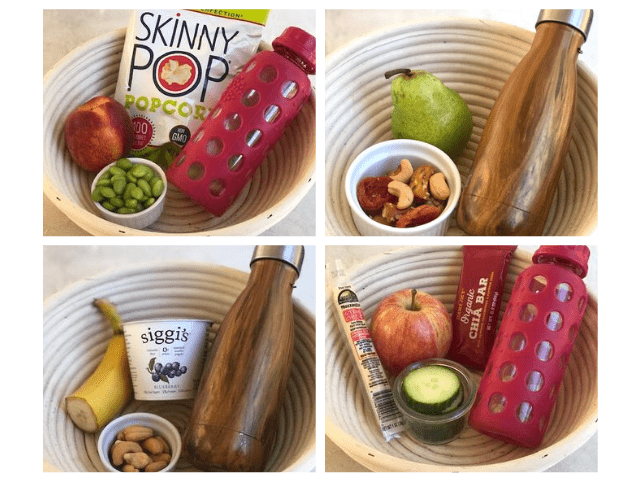One of the most common complaints I hear from parents is their kid’s incessant requests for a snack. I can relate. I remember the seemingly endless “I’m hungry” and “Can I have a snack” from my own three girls. The 24/7 snack cycle seems to be even more prevalent now that so many of us are home around the clock. While I honor the fact that children have small tanks that may need to be filled up regularly, I also know snacking can be a short-term cure for boredom rather than hunger. The constant whining for snacks is not just annoying, it can lead to overeating or interfere with appetite at meals.
If you want your kids to stop asking for snacks all day, this “snack box strategy” is worth a try. Here’s how it works:
- Each morning assemble a box or basket of snacks for each child to access between meals. Give them enough to tide them over, but not so much that it will interfere with their appetite at lunch and dinner.
- Emphasize nourishing foods with a balance of nutrients: fruits, vegetables, nuts, seeds, yogurt, and whole grains, with a little room for “fun” foods.
- Make the snack box accessible, either in the fridge or pantry, depending on perishability.
- Include a re-usable water bottle that kids can refill as needed. Water is the best way for all of us to hydrate.
- Adjust the strategy depending on the age of your children (little ones might need help with water bottles, food containers, or deciding when it’s a good time for a snack, for example).
- Let your kids know that once the box is empty, they can wait to eat again at mealtime.
- Consider trying the snack box idea yourself, especially if you are raiding the pantry a little too often for your own good.
Below you’ll find a line up of different snack baskets I assembled by way of example. The amount of food will depend on the individual’s age, energy needs, and appetite.
